Sales Motivation Techniques
Sales is a game of persistence, strategy, and mindset. Dynamo Selling is here to equip professionals with actionable techniques to stay motivated, driven, and focused on achieving goals. This article delves into the art and science of maintaining sales motivation, exploring innovative strategies and practical steps to energise your approach and outperform your targets.
Key Takeaways
- Goal-setting is essential for clarity and focus in sales.
- Continuous learning boosts skills and confidence.
- Celebrating small wins keeps morale high and builds momentum.
- Peer collaboration fosters innovation and accountability.
- Positive mindset practices reduce stress and drive success.
The Importance of Motivation in Sales
Sales professionals face constant challenges, from hitting ambitious targets to handling rejection. Staying motivated isn’t just about boosting morale; it directly influences productivity, creativity, and success rate. A motivated salesforce is more resilient, better equipped to build lasting client relationships, and ultimately contributes to the organisation’s bottom line.
Techniques to Stay Motivated in Sales
-
Set Clear and Achievable Goals
Breaking down larger objectives into smaller, actionable steps can provide much-needed clarity and direction. A structured approach like the SMART goal framework ensures goals are specific, measurable, achievable, relevant, and time-bound, making them more attainable and less overwhelming. This method supports progress tracking and fosters a sense of accomplishment as milestones are reached, helping professionals achieve their goals effectively.
-
Focus on Continuous Learning
Committing to professional development and ongoing learning equips sales professionals with the latest skills, tools, and strategies to navigate challenges effectively. Engaging in tailored sales training programs enhances confidence and adaptability, allowing individuals to refine their techniques and stay ahead in competitive markets.
-
Celebrate Small Wins
Recognising and celebrating incremental achievements can significantly impact motivation levels and morale. Whether it’s closing a minor deal, securing a promising lead, or achieving daily targets, these small victories build momentum and encourage persistence. Such moments remind sales professionals of their progress and validate their efforts, making larger goals feel more attainable.
-
Leverage Peer Support
Building a supportive environment by collaborating with peers fosters a culture of innovation, knowledge-sharing, and mutual accountability. Regular team meetings, brainstorming sessions, or even informal discussions can provide fresh perspectives on overcoming obstacles. A strong sense of camaraderie and shared purpose helps sales professionals stay motivated and inspired.
-
Maintain a Positive Mindset
Developing and sustaining a positive mindset is essential for navigating the ups and downs of a sales career. Practices like visualisation, affirmations, and mindfulness can help professionals stay focused on their goals, build resilience, and maintain emotional well-being. Incorporating these techniques into daily routines can reduce stress and foster long-term success.
-
Seek Feedback and Learn from Mistakes
Constructive feedback is a powerful tool for growth. Actively seeking input from managers, peers, or mentors provides valuable insights into areas of improvement. Instead of viewing mistakes as failures, treat them as opportunities to learn and refine your approach. Analysing setbacks can uncover patterns, helping to adjust strategies and avoid repeating errors in the future. Open communication and a willingness to adapt are essential traits for sustained motivation in sales.
-
Stay Organised and Prioritise Tasks
Disorganisation can lead to overwhelm, causing motivation to wane. Effective time management and task prioritisation keep work manageable and help focus on activities that drive results. Utilising productivity tools, such as calendars, to-do lists, or sales-specific software, ensures that important tasks aren’t overlooked. A structured approach provides clarity and reduces stress, creating a sense of control and accomplishment.
-
Celebrate Team Achievements
While individual achievements are important, celebrating team successes fosters a sense of unity and shared purpose. Recognising collective efforts not only boosts morale but also strengthens relationships within the team. Organising events, appreciation days, or shared incentives can reinforce a positive and collaborative work culture, inspiring everyone to contribute to shared goals.
Motivation is a dynamic process that thrives on consistency, reflection, and effort. Implementing these strategies can create a robust foundation for long-term success in sales.
Practical Tools for Sales Motivation
- CRM and Analytics: Customer relationship management (CRM) tools are essential for tracking performance, monitoring leads, and streamlining day-to-day processes. Advanced platforms such as Salesforce and HubSpot centralise client information and provide valuable analytics to ensure sales professionals can focus on high-priority tasks and opportunities.
- Incentives and Rewards: Incentive programs are a proven way to encourage sales teams to go above and beyond their targets. Implementing a tiered rewards system based on individual or team performance fosters healthy competition and high enthusiasm. These programs can include financial bonuses, recognition, or other meaningful rewards.
- Regular Training and Workshops: Continuous professional development through regular training and workshops ensures that sales professionals stay updated with the latest techniques and strategies. These sessions also create an environment where teams can share ideas, address challenges, and build skills that translate into better outcomes in the field.
Conclusion
Sales motivation isn’t a one-time fix; it’s a continuous journey that requires the right strategies, mindset, and support. Dynamo Selling specialises in empowering sales professionals with innovative tools and techniques to keep them motivated and focused. Ready to transform your sales approach? Contact us today to explore how we can elevate your career and drive success.
FAQs
- How do I stay motivated when facing rejection?
Rejection is part of the sales process. Focus on learning from each experience and remind yourself that every “no” brings you closer to a “yes.”
- What role does mindset play in sales?
A positive mindset enhances resilience, creativity, and problem-solving. It’s a critical factor in staying motivated and achieving long-term success.
- How can training improve my motivation?
Sales training equips professionals with the tools and techniques to handle challenges confidently.
- Are incentives necessary for sales motivation?
Incentives create a tangible reward for effort and results, fostering a competitive yet motivating atmosphere.
- What’s the best way to manage burnout in sales?
Time management, regular breaks, and mindfulness practices can significantly reduce burnout. Prioritise well-being to maintain long-term motivation.
- How often should I revisit my sales goals?
Regularly review weekly or monthly goals to ensure alignment with overall objectives and make adjustments as needed.




